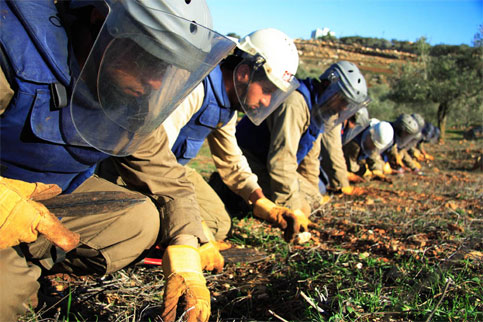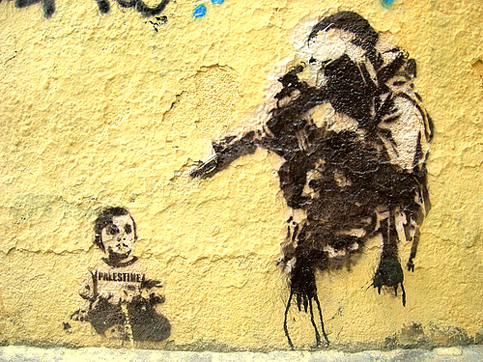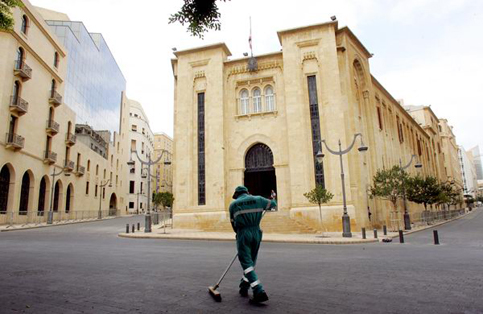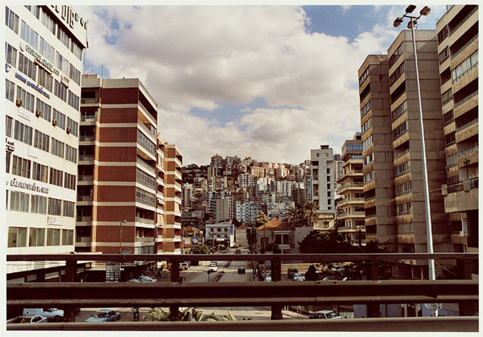Lebanon: Deminers find new cluster bomb sites without Israeli data
- Report: IRIN, UN humanitarian news and information service, 23 January 2008.

- Deminers from the Mine Action Group scour farmland in the village of
Zawtar West in south Lebanon for Israeli-dropped cluster bombs.
(Hugh Macleod/IRIN)
ZAWTAR WEST, 22 January: Deminers clearing Israeli-dropped cluster bombs in south Lebanon are turning up an average of 10 new sites per month, while Israel continues to ignore requests for data that would assist clearing the estimated one million unexploded bomblets, which continue to kill and maim civilians and decimate rural livelihoods. A single cluster bomb can disperse hundreds of bomblets.







